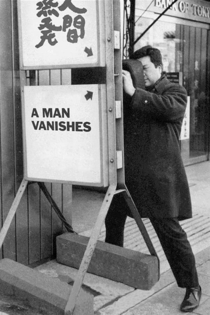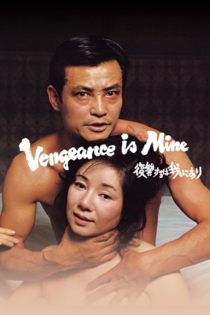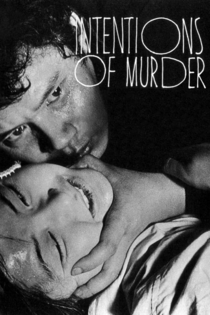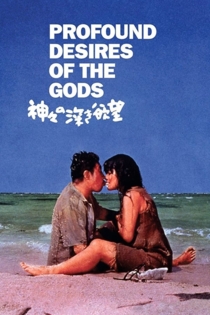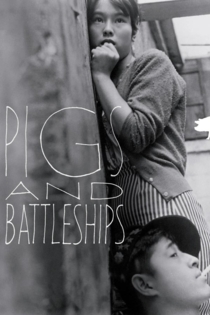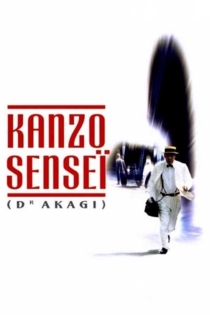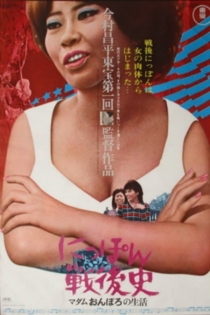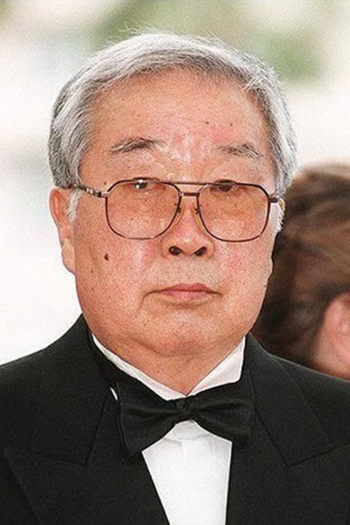
Shōhei Imamura
1926 - 2006His eldest son Daisuke Tengan is also a script writer and film director, and worked on the screenplays to Imamura's films The Eel (1997), Dr. Akagi (1998), Warm Water Under a Red Bridge (2001) and 11'9"01 September 11 (2002).
Black Rain
Shōhei Imamura
Yoshiko Tanaka, Kazuo Kitamura
Shigematsu Shizuma lives with his senile mother, his wife Shigeko, and his niece Yasuko in a village near Fukuyama. He, his wife, his niece and his close friends in the village were present at the atomic bombing of Hiroshima. The Shizumas look for prospective husbands for Yasuko, but find that the families withdraw on finding out she was at Hiroshima.
Black Rain
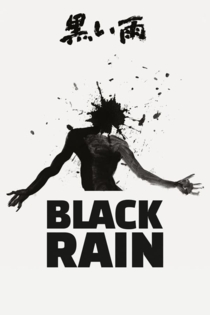
The Ballad of Narayama
Shōhei Imamura
Ken Ogata, Sumiko Sakamoto
In a small village in a valley everyone who reaches the age of 70 must leave the village and go to a certain mountain top to die. If anyone should refuse they would disgrace their family. Old Orin is 69. This winter it is her turn to go to the mountain. But first she must make sure that her eldest son Tatsuhei finds a wife.
The Ballad of Narayama
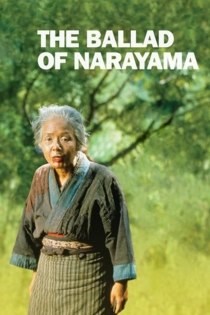
生きてはみたけれど・小津安二郎伝
Kazuo Inoue
Keiko Kishi, Yôko Tsukasa
An extremely lovely tribute to Ozu, on the 20th anniversary of his death. It uses a combination of footage from vintage films and new material (both interviews and Ozu-related locations) shot by Ozu's long-time camera-man (who came out of retirement to work on this). Surprisingly (or perhaps not), it focuses less on Ozu's accomplishments as a film-maker than on his impact on the lives of the people he worked with..
I Lived, But...
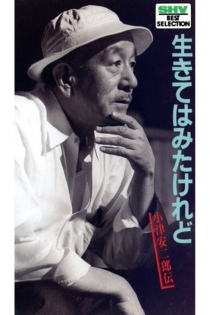
The Insect Woman
Shōhei Imamura
Emiko Aizawa, Masumi Harukawa
A woman, Tome, is born to a lower class family in Japan in 1918. The title refers to an insect, repeating its mistakes, as in an infinite circle. Imamura, with this metaphor, introduces the life of Tome, who keeps trying to change her poor life.
The Insect Woman
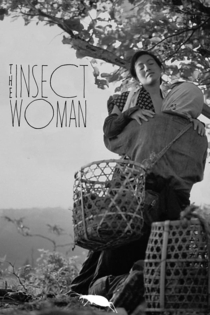
無法松故郷に帰る
Shōhei Imamura
Shōhei Imamura
“In Search of Unreturned Soldiers was about former soldiers of the Japanese army who chose not to return to Japan after the war. I found several of them who had remained in Thailand. Two years later, I invited one of them to make his first return visit to Japan and documented it in Outlaw-Matsu Returns Home. During the filming, my subject Fujita asked me to buy him a cleaver so that he could kill his ‘vicious brother.’ I was shocked, and asked him to wait a day so that I could plan how to film the scene. By the next morning, to my relief, Fujita had calmed down and changed his mind about killing his brother. But I couldn’t have had a sharper insight into the ethical questions provoked by this kind of documentary filmmaking.” —Shôhei Imamura
Outlaw-Matsu Returns Home
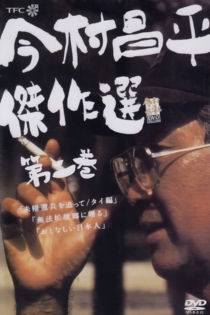
The Eel
Shōhei Imamura
Koji Yakusho, Misa Shimizu
White-collar worker Yamashita finds out that his wife has a lover visiting her when he's away; so he suddenly returns home and kills her. After eight years in prison, he returns to live in a small village, opens a barber shop (he was trained as a barber in prison) and talks to almost no one except for the eel he "befriended" in prison. One day he finds the unconscious body of Keiko, who attempted suicide and reminds him of his wife. She starts to work at his shop, but he doesn't let her become close to him.
The Eel

Karayuki-san
Shōhei Imamura
Kikuyo Zendo, Shōhei Imamura
Karayuki-san, the Making of a Prostitute is a 1975 Japanese film by director Shohei Imamura. It is a documentary on one of the Japanese "karayuki-san," who were women that were taken from their homes in Japan and used as prostitutes in the post-war period. Many of these women were told that they were doing this to support their families because of the extreme poverty that the war left much of Japan to live in. Imamura focuses on a particular such woman who was sent to Malaysia and never returned to Japan. Joan Mellen, in The Waves at Genji's Door, called this film, "Perhaps the most brilliant and feeling of Imamura's fine documentaries."
Karayuki-San, the Making of a Prostitute
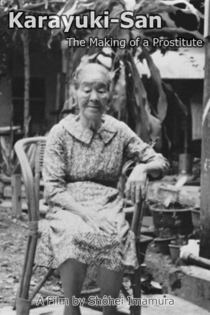
果しなき欲望
Shōhei Imamura
Hiroyuki Nagato, Misako Watanabe
Set in post-war Japan, a group of five, four men and one woman, gathers in the basement of a butcher shop to dig up a cache of morphine buried during the war. A grimly humorous tale of twisted relationships as one by one each of the group is eliminated.
Endless Desire
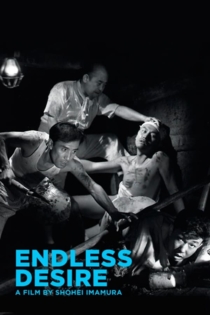
The Pornographers
Shōhei Imamura
Shoichi Ozawa, Sumiko Sakamoto
Subu makes pornographic films. He sees nothing wrong with it. They are an aid to a repressed society, and he uses the money to support his landlady, Haru, and her family. From time to time, Haru shares her bed with Subu, though she believes her dead husband, reincarnated as a carp, disapproves. Director Shohei Imamura has always delighted in the kinky exploits of lowlifes, and in this 1966 classic, he finds subversive humor in the bizarre dynamics of Haru, her Oedipal son, and her daughter, the true object of her pornographer-boyfriend’s obsession. Imamura’s comic treatment of such taboos as voyeurism and incest sparked controversy when the film was released, but The Pornographers has outlasted its critics, and now seems frankly ahead of its time.
The Pornographers
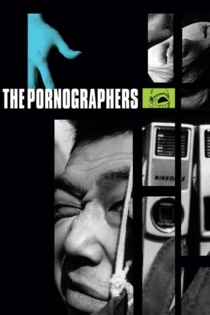
人間蒸発
Shōhei Imamura
Yoshie Hayakawa, Shōhei Imamura
A Man Vanishes examines the concept of Johatsu, tackling the phenomenon of people missing in Japan over the years. It picks one such person from the list, someone who had seemed to disappear from the face of the earth due to embezzlement from his company, and the filmmakers begin an investigative documentary into the reasons behind and attempt at tracking him down.
A Man Vanishes
